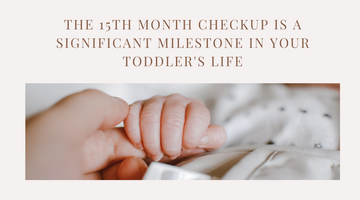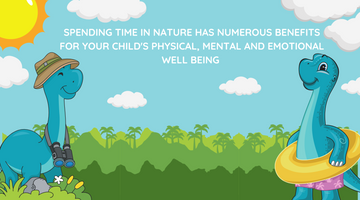As a parent, you want the best for your child, and that includes ensuring that they are healthy and developing well. The 15-month checkup is a significant milestone in your toddler's life, as it marks a crucial period in their physical, emotional, and cognitive development. The 15-month checkup is an opportunity for your child's doctor to check for any signs of illness, such as infections or abnormalities. During the 15-month checkup, your child's doctor will assess their diet and nutrition, and provide guidance on healthy eating habits. They will also examine your child's teeth and gums, and offer advice on dental care and hygiene. Your child may undergo hearing and vision screening tests to ensure that their senses are functioning properly. Your child may also receive additional vaccinations at this appointment, which can protect them from serious diseases and prevent outbreaks. The doctor will also discuss behaviour and safety strategies with you.
Physical Examination
The 15-month checkup usually begins with a physical examination. Your toddler's doctor will measure their height, weight, head circumference, and body mass index (BMI). They will also examine your toddler's ears, nose, throat, and eyes to check for any issues, such as infections or abnormalities. The doctor will also examine your child's skin, looking for rashes or other signs of illness.
Vaccinations
Vaccinations are an essential part of your toddler's healthcare routine, and they will likely receive additional vaccinations at their 15-month checkup. The vaccines your child may receive at this appointment include:
- Measles, mumps, rubella (MMR)
- Varicella (chickenpox)
- Hepatitis A
- Pneumococcal disease
Your child's doctor may also recommend other vaccines based on your child's medical history and current health status. It's important to discuss any concerns you have with your doctor regarding vaccinations, as they can help alleviate any fears or uncertainties.
Developmental Assessment
During the 15-month checkup, your child's doctor will assess their developmental milestones, including their physical, emotional, and cognitive development. They will ask questions about your toddler's behavior and activities, and observe how your child interacts with you and others in the room.
Your child's doctor will evaluate several areas of development, including:
- Gross motor skills (such as walking or running)
- Fine motor skills (such as picking up small objects)
- Language and communication skills
- Socialization and play skills
- Problem-solving and cognitive skills
Your doctor will also provide guidance on how to support your child's development, such as age-appropriate activities, play, and communication strategies.
Also Read: How to Calm Your Fussy Baby
Nutritional Assessment
Proper nutrition is vital for your child's growth and development. During the 15-month checkup, your child's doctor will ask about your toddler's diet and nutrition, and offer advice on healthy eating habits. They may also recommend iron and vitamin D supplements, especially if your toddler is not consuming enough of these nutrients in their diet.
Dental Examination
Good oral hygiene is crucial for your child's overall health. At the 15-month checkup, your child's doctor will examine their teeth and gums, and provide guidance on dental care and hygiene. This may include recommendations for brushing and flossing, as well as avoiding sugary foods and drinks.
Hearing and Vision Screening
Hearing and vision problems can impact your child's development and learning, so it's important to identify any issues early on. During the 15-month checkup, your child may undergo hearing and vision screening tests to ensure that their senses are functioning properly.
Behaviour and Safety
Your child's doctor will also discuss behaviour and safety strategies with you. They may offer guidance on how to keep your child safe at home and in public, such as childproofing your home or using car seats and other safety equipment. Your doctor may also provide advice on managing challenging behaviours, such as tantrums or separation anxiety.
In conclusion, the 15-month checkup is a crucial time in your toddler's life, and it's essential to attend the appointment and follow your doctor's advice. This checkup allows your child's doctor to assess their overall health and development, identify any potential issues, and provide guidance and recommendations
Read Article: How to Balance Work and Parenting with a Baby






